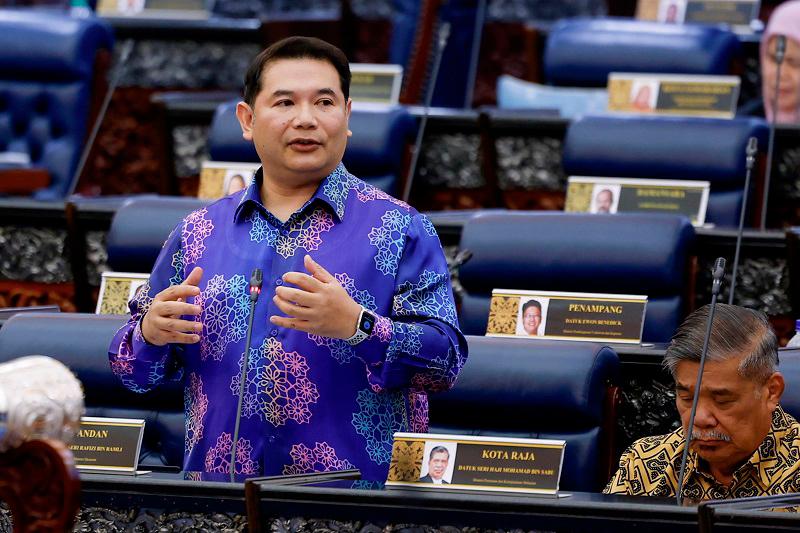KUALA LUMPUR: The uncertainty in the global economy following US President Donald Trump’s tariff hikes on Canada, Mexico and China presents an opportunity for Malaysia to accelerate economic reforms, Economy Minister Datuk Seri Rafizi Ramli said.
He said the government recognises that new policy shifts under the Trump administration are expected to impact the global economy and weigh on investment sentiment, particularly in the short term.
“Malaysia is no exception, especially as we are a major trading nation and the United States is one of our largest trading partners.
“At the government level, this issue is being addressed in an integrated manner, led by the Ministry of Investment, Trade and Industry (MITI),“ he said during a question-and-answer session in the Dewan Rakyat.
He was responding to a supplementary question from Chong Zhemin (PH-Kampar), who asked about the impact of Trump’s tariffs on Malaysia’s economic outlook.
Rafizi said the government must remain vigilant and responsive to global developments to safeguard relations with key trading partners.
“If issues arise, even if they do not directly involve Malaysia, the government must act proactively to address them to ensure continued positive ties with the United States, China, and other trading partners.
“At the same time, we must focus on strengthening our economic fundamentals, including fiscal resilience, the shift towards higher-value economic activities, and the continued implementation of investment- and business-friendly policies,” he said.
He said that while short-term uncertainty is expected, long-term investment decisions that drive economic competitiveness must remain the priority.
“In the short term, we need to address investment sentiment in the stock market and currency fluctuations. However, investment decisions worth billions of ringgit, which create jobs and sustain economic growth over the next five, 10 or 15 years, are long-term commitments,” he said.
Rafizi said Malaysia’s economy is projected to grow between 4.5 per cent and 5.5 per cent in 2025, supported by a stable external environment, domestic demand, and improving labour market conditions.
“This projection aligns with estimates from several international agencies, including the International Monetary Fund, which forecasts Malaysia’s GDP to grow by 4.7 per cent, and the World Bank, which expects 4.9 per cent growth in 2025,” he added.
The economy is expected to be driven by the services, manufacturing and construction sectors.









